Have Fun in Pyongyang (2019)
Gênero : Documentário
Runtime : 1H 13M
Director : Pierre-Olivier François
Sinopse
Is it possible to have fun in Pyongyang? Can one be joyful in the Democratic People’s Republic of Korea? If so, who can? Everyone? Doing what? Why does Kim Jong-un bet on amusement parks, skis trails, and tourism? This film allows to go beyond mass parades and recurring missile crisis, to meet the people of North Korean “Hermit Kingdom”. The authors have been there dozen times, like amateur anthropologists, filming during eight years parties and harvests, factories and singing contests, Pyongyang and the countryside – and interviewing North Korean people.

Dave Skylark e seu produtor Aaron Rapoport têm um programa de TV apelativo sobre celebridades chamado "Skylark Tonight". Eles descobrem que o ditador norte-coreano Kim Jong-un é fã do programa e decidem fazer uma entrevista com ele, na tentativa de legitimarem-se como jornalistas. Enquanto Dave e Aaron se preparam para viajar para Pyongyang, eles têm seus planos mudados pela CIA, que os recruta para assassinar Kim Jong-un.
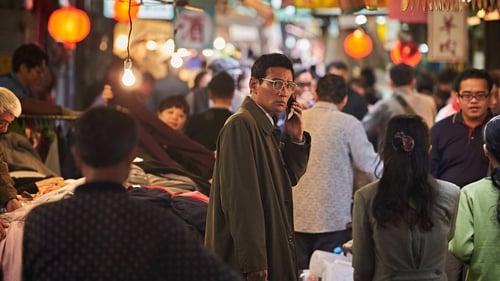
Em 1993, a Guerra Fria continuava na Coreia. Seok-young Park (Hwang Jung-Min), é um espião militar da Coreia do Sul enviado ao país inimigo (Coreia do Norte), sob o disfarce de empresário. Sua missão é descobrir os segredos relacionados ao desenvolvimento de armas nucleares pelo regime comunista. Com o tempo, ele ganha a confiança dos norte coreanos e consegue se infiltrar dentro de uma instalação nuclear, até então, secreta.
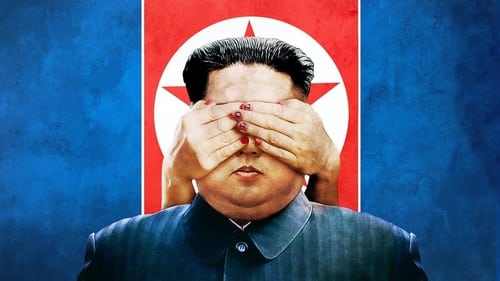
Um relato das duas mulheres condenadas pelo assassinato do meio-irmão de Kim Jong-un, Kim Jong-nam. O filme acompanha os julgamentos das mulheres na tentativa de entender se elas são assassinas treinadas ou simplesmente peões.
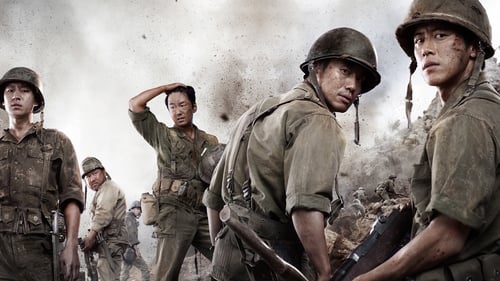
Nos últimos dias da Guerra da Coreia (1950-1953), os exércitos do norte e do sul disputam entre si o controle do Monte Hwabaek. No primeiro conflito armado pós-1945, a irracionalidade da guerra atinge seu auge, arrastando a todos para um universo de loucura coletiva. Um a um, os soldados da Companhia Alligator rendem-se à insanidade. Ali, só há uma certeza: eles já estão todos mortos. A guerra é o inferno de cada um.

It’s October 10 2020 and Kim Jong-un presents the largest mobile rocket on Earth. Jippe Liefbroer, Interaction Design student, sees the rocket and thinks: it can be bigger. For his graduation project he built 'Kimmi's worst nightmare', a 31 meter long rocket. That is 1 meter longer than Kim Jung-un's.
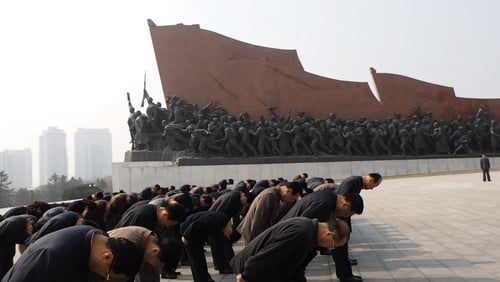
North Korea. The last communist country in the world. Unknown, hermetic and fascinating. Formerly known as “The Hermit Kingdom” for its attempts to remain isolated, North Korea is one of the largest sources of instability as regards world peace. It also has the most militarized border in the world, and the flow of impartial information, both going in and out, is practically non-existent. As the recent Sony-leaks has shown, it is the perfect setting for a propaganda war.
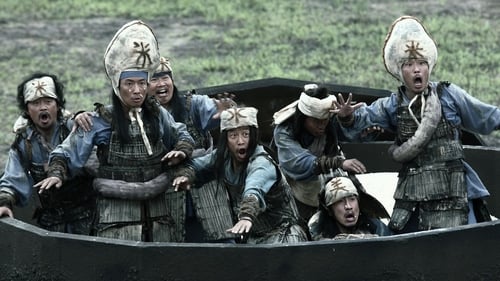
This story unfolds 8 years after 'Battle of Hwangsanbeol', which destroyed Baekjae, when Silla-Tang Dynasty union attacks Goguryeo.
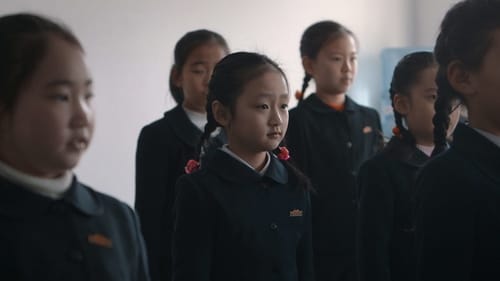
Zin-mi é uma menina de oito anos de idade que está em fase de preparação para a celebração do aniversário do ditador norte-coreano, o "líder supremo" Kim Jong-il. No entanto, isto não passa de uma programa do governo, uma representação criada pelo Estado para vender a imagem do suposto regime democrático da Coréia do Norte e mascarar o que realmente acontece dentro do país.
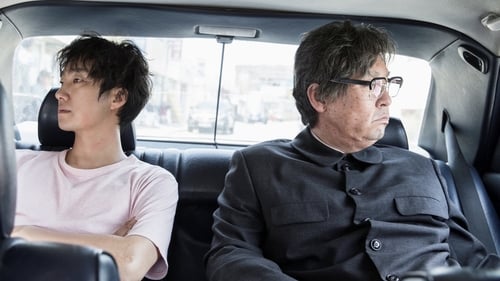
Sung-geun is an untalented actor who makes a living playing minor roles. He happens to land on the role as Kim Il-sung, the former leader of North Korea, for the rehearsal of the South-North Korea Summit. Sung-geun becomes passionately immersed in his role, motivated by his son who looks up to him. However, the summit is not realized, and Sung-geun ends up lost in the delusion that he really is Kim Il-sung.

Dennis Rodman is on a mission. After forging an unlikely friendship with North Korean leader Kim Jong-un, he wants to improve relations between North Korea and the US by staging a historic basketball game between the two countries. But the North Korean team isn't the only opposition he'll face... Condemned by the NBA and The Whitehouse, and hounded every step of the way by the press, can Dennis keep it together and make the game happen? Or will it go up in a mushroom cloud of smoke? For the first time, discover the true story of what happened when Dennis Rodman took a team of former-NBA players to North Korea and staged the most controversial game of basketball the world has never seen.
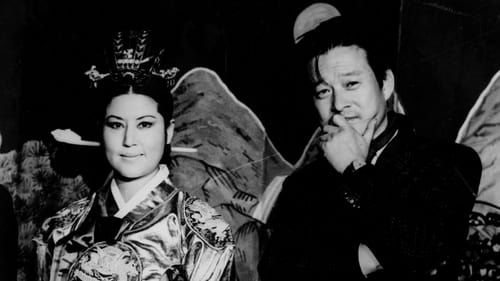
Hong Kong, 1978. South Korean actress Choi Eun-hee is kidnapped by North Korean operatives following orders from dictator Kim Jong-il. Her ex-husband, film director Shin Sang-ok, undertakes her search, but soon after he is kidnapped as well. In 1983, after living through years of tribulations, Kim Jong-il puts them in charge of the North Korean film industry in the hope of gaining international recognition.

Shin Dong-Huyk was born on November 19, 1983 as a political prisoner in a North Korean re-education camp. He was a child of two prisoners who had been married by order of the wardens. He spent his entire childhood and youth in Camp 14, in fact a death camp. He was forced to labor since he was six years old and suffered from hunger, beatings and torture, always at the mercy of the wardens. He knew nothing about the world outside the barbed-wire fences. At the age of 23, with the help of an older prisoner, he managed to escape. For months he traveled through North Korea and China and finally to South Korea, where he encountered a world completely strange to him.
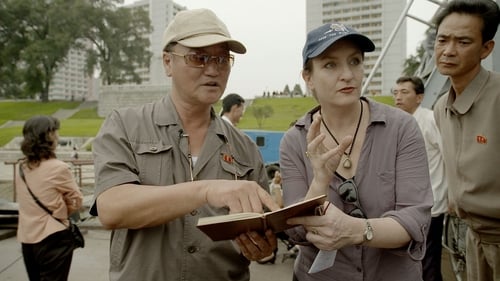
A revolutionary film about the cinematic genius of North Korea's late Dear Leader Kim Jung-IL, with a groundbreaking experiment at its heart - a propaganda film, made according to the rules of his 1987 manifesto. Through the shared love of cinema, AIM HIGH IN CREATION! forges an astonishing new bond between the hidden filmmakers of North Korea and their Free World collaborators. Revealing an unexpected truth about the most isolated nation on earth: filmmakers, no matter where they live, are family.

On the morning of her first day at a new school, a girl practices different ways to greet her teacher in order to make a good impression. A bundle of nerves, she heads off to school, and, contrary to her expectations, is met with indifference by the teacher.

Bob Woodruff’s daring 880-mile journey along the China-North Korea border examines the delicate relationship between the two countries and the United States.
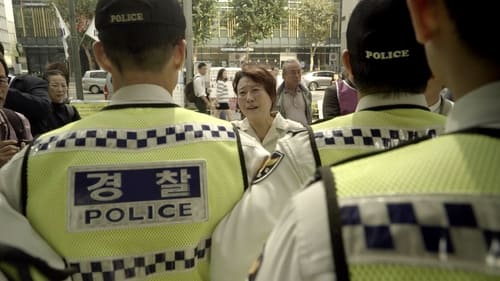
Ryun-hee Kim, a North Korean housewife, was forced to come to South Korea and became its citizen against her will. As her seven years of struggle to go back to her family in North Korea continues, the political absurdity hinders her journey back to her loved ones. The life of her family in the North goes on in emptiness, and she fears that she might become someone, like a shadow, who exists only in the fading memory of her family.

Is it possible to have fun in Pyongyang? Can one be joyful in the Democratic People’s Republic of Korea? If so, who can? Everyone? Doing what? Why does Kim Jong-un bet on amusement parks, skis trails, and tourism? This film allows to go beyond mass parades and recurring missile crisis, to meet the people of North Korean “Hermit Kingdom”. The authors have been there dozen times, like amateur anthropologists, filming during eight years parties and harvests, factories and singing contests, Pyongyang and the countryside – and interviewing North Korean people.

From 1950 to 1953, one hundred thousand children were orphaned by the Korean War. With no resources to mend the wounds, the two sides, North and South, took different paths to find homes and families for the war orphans. While the children of South Korea were sent to Europe and the United States through ‘International Adoption’, the children of North Korea were distributed across Eastern Europe through a method called ‘Commissioned Education’. As a result, more than five thousand children from the North had to spend nearly a decade living in foreign lands across Eastern Europe. This story is a record of their lives, which used to be kept hidden from the rest of the world. There is a key to understanding how North Korea's closed political structure began and how the ‘Juche ideology’ was formed in this documentary movie. Understanding North Korea in the 1950s is an important way to understand North Korea at present.

















